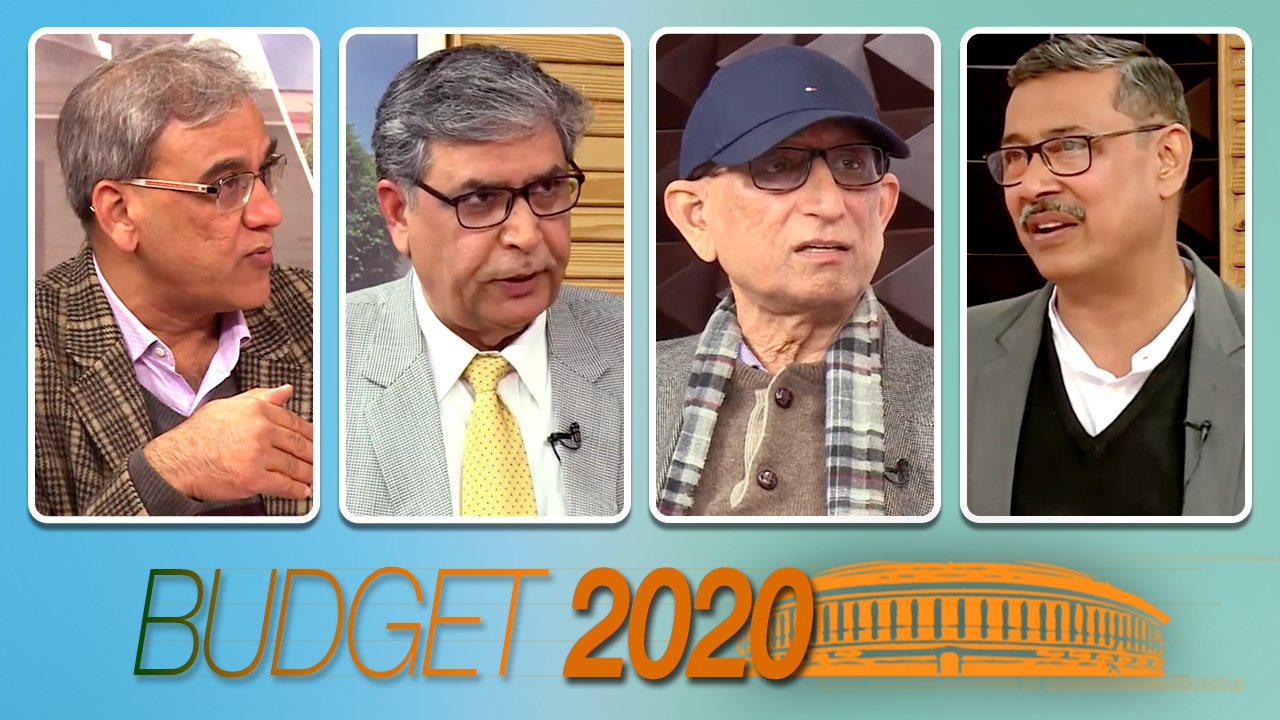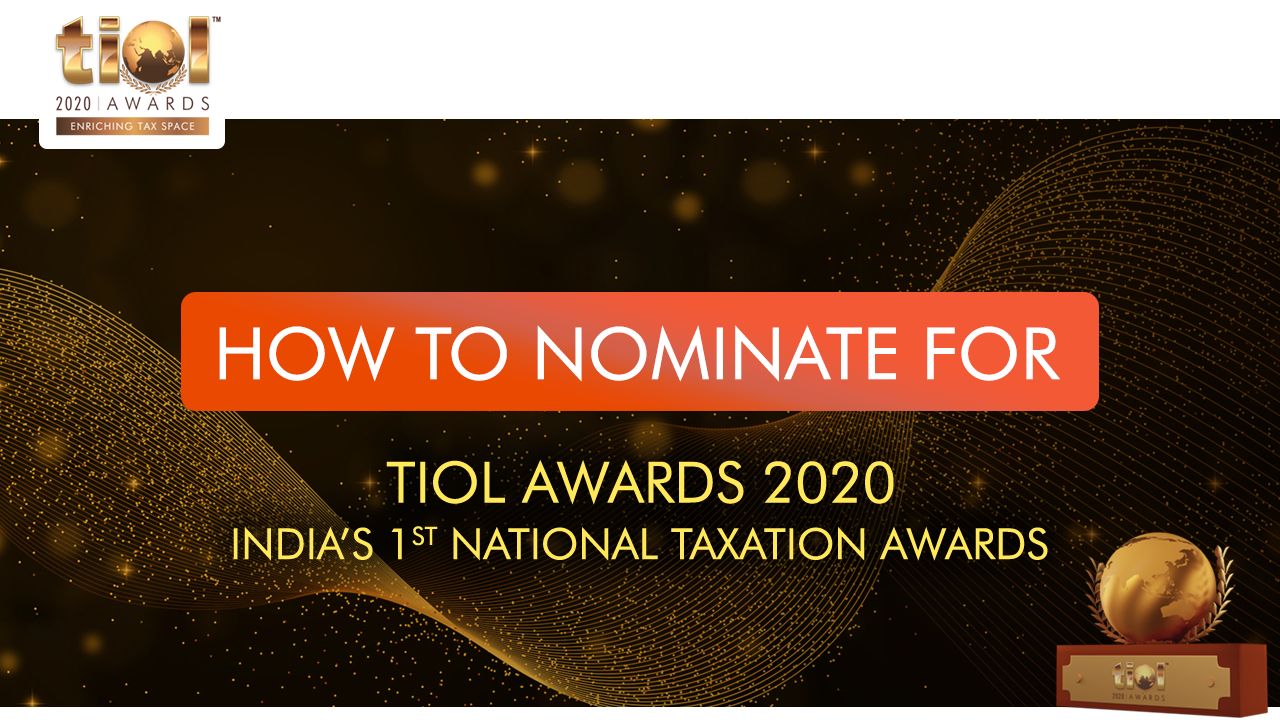|
SERVICE TAX
2020-TIOL-261-HC-MAD-ST
Sathee Engineering Construction Company Vs ADDL CCE
ST - An SCN was served to the assessee herein, proposing to raise duty demand under the heading Erection, Commissioning & Installation service - On adjudication, the demands were confirmed along with demand for EC and SHEC - The assessee claimed to be unable to file an appeal on account of the unfortunate demise of the spouse of the assessee-company's proprietor - Hence the present writ.
Held - It is seen that the assessee did not file reply to the SCN - It is seen that the date of demise of the proprietor's spouse pre-dated the date of issuing SCN by almost a year - Whilst the appeal to the Commr.(A) is to be filed within the 60 day limitation period, further extendable by 30 days, the assessee did not do so - The present writ is also filed after a long lapse of about two years - Hence the assessee cannot be permitted to approach the Commr.(A) now, as the assessee has been negligent by neither participating in the adjudication mechanism nor exercising the statutory option of appeal within limitation - No steps were taken in either direction - Hence the present petition is devoid of merits: HC
- Writ petition dismissed: MADRAS HIGH COURT
2020-TIOL-249-CESTAT-AHM
Surya Shipping Vs CCE & ST
ST - The assessee-company is engaged in purchasing space on ocean going vessels from shipping companies and selling the same to various exporters for export of goods - In most cases, the assessee have sold the same at a profit while also suffering a loss in some cases - The shipping companies raise invoices on the assessee for freight and the assessee raises its invoices on the exporters for the freight charged by the assessee to the exporters - The difference between freight charged by shipping companies to the assessee and that charged by the assessee to the exporters, represent the profit or loss, as the case may be, made by the assessee in respect of the said activity of buying and selling the space on ocean going vessels - The Revenue claimed that the profit or excess freight charged by the assessee to its customers as compared to the freight charged by the shipping companies, the same is taxable under Business Support Service - Duty demand was raised and the same was sustained by the Commr.(A) - Hence the present appeal.
Held: There is no dispute about the activity carried out by the assessee - In the transaction of purchase and sale of space, it earns some profit for the reason that in some cases, the sale price of the space to various exporters is more than the purchase price of the space paid to shipping companies - There is no service involved in such transaction as the purchase and sale of the space is an activity of sale and purchase and hence, not liable to service tax - This issue has been considered by various judgments time and again and this Tribunal held that since the activity of sale and purchase involves no service hence the profit earned on sale of space is not liable to service tax - It is settled law that any amount charged for space on ocean going vessels, over and above the purchase price is not liable to service tax - Hence the O-i-A is unsustainable and merits being quashed: CESTAT
- Assessee's appeals allowed: AHMEDABAD CESTAT
CENTRAL EXCISE
2020-TIOL-270-HC-DEL-CX
Genex Foods Pvt Ltd Vs CCE
CX- (i) Was the CESTAT justified in declining to extend the benefit of the order passed by the Settlement Commission to the present Appellant? (ii) Was the CESTAT obliged to deal with the appeal on merits notwithstanding the preliminary objection raised by the Department on issue (i) above?
Held: Insofar as question (i) above is concerned, the Court is of the view that the mere fact that the Settlement Commission permitted the Department to proceed against the co-noticees in accordance with law did not mean that the co-noticees could not rely on the said order to argue, on the basis of the judgment of this Court in Lesag HBB (I) Ltd. and Others vs. CCE - 2016-TIOL-2798-HC-DEL-CUS and that of the Supreme Court in Union of India vs Omkar S Kanwar[(2002) 145 ELT 266 (SC)] that the proceedings against them ought to have been dropped under the KVS Scheme -the Court finds that the CESTAT has not discussed the import of the two judgments in the impugned orders - even as regards question (ii), it is plain on reading the order dated 5.6.2018 that there is no discussion on the merits of the appeal in the said order -in other words, once the CESTAT accepted the plea of the Department that the benefit of the order of the Settlement Commission should not be extended to the Appellant, the logical sequitur was that the appeal had to then be considered on merits -the Court fails to understand how the CESTAT could observe that nothing further remained to be decided in the appeals in view of the order of the Settlement Commission -the Court is of the view that both issues (i) and (ii) above require reconsideration by the CESTAT -as a result, the impugned orders dated 5.6.2018 and 21.2.2019 of the CESTAT are hereby set aside - Appealsrestored to the file of the CESTAT for being considered afresh uninfluenced by the earlier orders dated 5.6.2018 and 21.2.2019: HIGH COURT [para 14, 15, 16, 17]
- Matter remanded: DELHI HIGH COURT
2020-TIOL-266-HC-MAD-CX
ACGST & CE Vs Shriram Value Services Pvt Ltd
CX - The Revenue has filed the present Appeal aggrieved by the order dated 18.1.2018 [2018-TIOL-1568-CESTAT-MAD] passed by the CESTAT allowing the Appeal filed by the Assessee [Respondent] and holding that during the relevant period viz., April 2009 to March 2011, the Assessee had a bona fide belief that the trading activity carried out by it was Exempted Services and the Assessee was eligible to avail the cenvat credit for the period prior to 1.4.2011 when such trading activity was deemed to be Exempted Services and, therefore, the SCN issued to the Assessee invoking the extended period of limitation was not justified as the Assessee had not malafidely evaded any payment of Duty on such trading activity by availing the cenvat credit in respect of input services
Held: From the impugned order, it is clear that the position was clarified by the Government by insertion of Explanation only with effect from 1.4.2011 that the trading activity will be Exempted Services - the Explanation is clarificatory in nature and can be held to be applicable even for the past period - thus, at the relevant period of time, viz., from April 2009 to March 2011, the Assessee was, obviously, under bona fide belief in view of the conflicting decisions of the Tribunals during that period and taking the trading activity as Exempted Services, availed the cenvat credit which is sought to be reversed and recovered by the Department invoking the extended period of limitation - such a bona fide belief cannot be held to be done with ulterior purpose for evading the Duty and, therefore, the extended period of limitation would not be available to the Revenue Authority in view of the decision rendered by the Supreme Court in the case of Kolety Gum Industries - 2016-TIOL-58-SC-CX - the judgments relied upon by the Revenue viz., Gujarat High Court's decision in CCE v. Neminath Fabrics Pvt. Ltd. - 2011-TIOL-10-HC-AHM-CX as well as decision of a Division Bench of this court in the case of King Bell Apparels - 2018-TIOL-2447-HC-MAD-CX are not applicable to the facts of the present case as even without attributing any knowledge to the Revenue Authority about such dispute, the fact remains that in view of the Explanation inserted later on in favour of the Assessee for the period prior to 1.4.2011, the Revenue Authority cannot be permitted to reverse such cenvat credit and recover the Duty, alleged to have been evaded by the Assessee, invoking the extended period of limitation under section 11A of the CE Act - therefore, the controversy stands covered by the Supreme Court decision in Kolety Gum Industries case (supra), relied upon by the Assessee and the present Appeal of Revenue is found to be devoid of any merit and the same is liable to be dismissed -accordingly, it is dismissed: HIGH COURT [para 6, 7, 8]
- Appeal of Revenue dismissed: MADRAS HIGH COURT
2020-TIOL-248-CESTAT-MUM
Nagpur Business Forms Pvt Ltd Vs CCE
CX - Appellants are engaged in the manufacture of various Computer Stationeries, LIC Forms, Bank Statement Forms as per the requirement of LIC, Banks & Govt department and had classified the same under CSH 482040 of CETA, 1985 and were paying duty accordingly - However, vide their letter dated 08.05.2009 the appellant intimated the department that these goods are more appropriately classifiable under heading 4901, attracting "Nil" rate of duty and have accordingly discontinued payment of duty on these goods from 01.05.2009 - CE duty for the period 01.05.2009 to 31.05.2009 and from 01.06.2009 to January 2010 was demanded from the assessee and confirmed along with interest and equal penalty - since their appeals were dismissed by the Commissioner(A), the appellant is before the CESTAT.
Held: CBEC has vide Circular No 1052/1/2017-CX dated 23rd February 2017, clarified that the impugned goods are correctly classifiable under chapter 49 - In view of the above clarification issued by CBEC, Bench does not find any merits in the impugned order holding the classification of the impugned goods under Chapter Heading 4820 - impugned order is set aside and appeal is allowed: CESTAT [para 4.2, 4.3, 5.1]
- Appeal allowed: MUMBAI CESTAT
2020-TIOL-247-CESTAT-AHM
Varsana Ispat Ltd Vs CCE & ST
CX - No stock of TMT 12mm bars was found while the daily stock account showed the quantity of 368.540 MT - Allegation of clandestine removal of TMT bars - Charge of clandestine clearance has been made without any other evidence and it is a conclusion drawn solely on the basis of the discrepancy in the physical stock vis-à-vis daily stock account - This discrepancy needs to be appreciated in the background of the fact that the discrepancy consist of only 0.31% of the total production during the said period and also from the fact that the appellant do not stand to gain by evading Central Excise Duty as they were availing benefit of Notification No. 39/2001-CE which entitled them to claim refund of duty paid through PLA in cash - where the shortage was insignificantly low as compared to total production and in absence of any positive evidence, the charge of clandestine removal cannot be sustained - appellant has been able to show the plausible reasons for the discrepancy, therefore, demand is set aside and appeals are allowed: CESTAT [para 4]
- Appeals allowed: AHMEDABAD CESTAT
CUSTOMS
2020-TIOL-269-HC-DEL-CUS
Ashish Jain Vs UoI
Cus - Petitioners have asked for release of the seized diamond studded gold jewellery on the ground that the SCN was not served on each of the Petitioners within the mandatory period under section 124 of the Customs Act, 1962.
Held: Since there is a failure as on date to produce any convincing proof of the Petitioners having been served with the SCN, within the time stipulated, the Court directs the release to Ram Chandra of the 2 gold bars of 2000 grams seized from him - the Court further directs that the jewellery deposited by Ashish Jain containing 492.34 grams of 14 carat and 18 carat gold which has also been seized by the Department be released to Ashish Jain - the above release will be subject to both Ram Chandra and Ashish Jain first filing on or before 31.5.2019 in this Court in these proceedings separate affidavits undertaking that as and when directed by the Court each of them will produce before the Department gold of the same quantity and purity - if such undertaking is filed as directed, the seized goods as indicated above shall be respectively released not later than 10 days thereafter -the Court does not propose to dispose of the petitions at this stage and would like the Respondents to place before it an affidavit stating clearly what the outcome of the explanation/inquiry by the Commissioner of Customs into the missing documents is - this affidavit be filed at least 1 week prior to the next date of hearing - it is directed that till the next date of hearing, the adjudication orders passed in the matters shall be kept in abeyance: HIGH COURT [para 10, 11]
- Matter listed: DELHI HIGH COURT
2020-TIOL-268-HC-MAD-CUS
Hari And Company Vs CC
Cus - Handling of Cargo in Customs Areas Regulations, 2009[HCCAR, 2009] - The instant writ petition has been filed challenging the order dated 25.1.2019 passed by the second respondent rejecting the request made by the petitioner [CFS] for release of the 'Bank Guarantee' dated 30.10.2018 for a sum of Rs.6.79 crores.
Held: The 'Bank Guarantee' was furnished by the petitioner for a sum of Rs.6.79 crores only to secure the loss of the stolen goods namely the Red Sanders, which were entrusted by the DRI to the petitioner for safe custody -the 'Bank Guarantee' was given only as a condition for seeking stay of suspension of license -the fact that the stolen goods have been seized and is now lying with the forest department has not been disputed by the respondents -the only thing they are disputing is that it has not been returned back to them by the forest department and, therefore, at this stage, the 'Bank Guarantee' given by the petitioner cannot be returned by them -admittedly, the stolen goods are now very much available with the forest department which in all likelihood will be returned back to the respondents in accordance with law -the petitioner does not seem to be a fly-by-night operator, as they are having a good business at Tuticorin Port - this Court is of the considered view that no useful purpose would be served by the retention of 'Bank Guarantee' -being a commercial establishment, the said amount of Rs.6.79 crores for which the 'Bank Guarantee' was issued will be useful for the petitioner for his day-to-day business, instead of remaining idle without benefiting both the parties -in the interest of justice, the order dated 25.1.2019 passed by the second respondent rejecting the request made by the petitioner for the release of 'Bank Guarantee' for a sum of Rs.6.79 crores dated 30.10.2018 is hereby quashed and the first respondent is directed to release the 'Bank Guarantee' within a period of two weeks - however, the respondents are at liberty to initiate legal action against the petitioner, if they are found to violate any of the statutory Regulations, including the HCCAR, 2009 -with the aforesaid directions, the Writ Petition is disposed of : HIGH COURT [para10, 11, 12, 13, 14, 15]
- Writ Petition disposed of: MADRAS HIGH COURT
2020-TIOL-267-HC-ALL-CUS
CC Vs Maa Gauri Traders
Cus - (1) Whether the CESTAT has erred by disbelieving the test report dated 23.3.2017 of the Arecanut Research & Development Foundation, Mangalore, determining that the betel nuts are of Indonesian origin on the pretext that in a RTI reply, the Directorate of Arecanut and Spices Development, Ministry of Agriculture and Farmer Welfare, Government of Kerala stated that - 'it is not possible to determine the place of origin of betel nut through test', while Agriculture Directorate is not equipped to make such tests ? (2) Whether the Commissioner(Appeals) as well as the CESTAT both erred by discrediting the Order-In-Original dated 29.3.2018 passed by the Adjudicating Authority, by entertaining new documents as evidence which were not produced earlier during adjudicating proceedings ?
Held: The issue regarding origin of the betel nuts, would be purely a question of fact -applying the principles enshrined in the decisions in the cases of Union of India v. Ibrahim Uddin [(2012) 8 SCC 148], Sewalal Chhogalal v. CIT 1949) 17 ITR 269 (Nag) ] and Kashmir Singh v. Harnam Singh [(2008) 12 SCC 796 : AIR 2008 SC 1749] , it is apparent that the CESTAT after considering all the material on record including the orders passed by the authorities below, have given a concurrent finding of fact that the Revenue could not establish the foreign origin of the betel nuts -the documents produced by the respondents indicated that the goods in question were purchased from local markets, and in support of the purchases they produced the market receipts which has not been doubted by the Revenue Authorities themselves at any stage of the proceedings -the report of the Arecanut Research and Development Foundation has also been held to be not reliable in as much as it could not be shown with any degree of certainty that the origin of the betel nuts could be established by testing in a laboratory, as is clear by the answer to the RTI query given by Directorate of Arecanut And Spice Development, Ministry of Agriculture and Farmers Welfare, Government of Kerala -further, the Revenue did not argue or place any material to indicate that the betel nuts in question were smuggled into India, even if, for a moment, it is assumed that they were of foreign origin, in order to sustain the order of confiscation and penalty -considering the aforesaid factual matrix, the judgment of the Apex Court in the case of Collector of Customs Vs D.Bhoormull - 2002-TIOL-253-SC-CUS would also not be of any assistance to the Revenue, in as much as, they have failed to establish with any degree of probability that a prudent man, on its basis, could believe that the betel nuts were of foreign origin -no other question was pressed by the counsel for the Revenue -in light of the above, since no infirmity found with the judgement of the CESTAT, and also for the reason that no substantial question of law arises for the determination in the present appeal, the Revenue appeal is dismissed: HIGH COURT [para 11, 15, 16, 17, 18, 19]
- Appeal dismissed: ALLAHABAD HIGH COURT
2020-TIOL-246-CESTAT-KOL
CC Vs Shaan Enterprises
Cus - The assessee has imported old and used worn clothing and two bills of entry were filed covering the five consignments of importer - At the time of original assessment, the declared value of imported goods was enhanced - The original adjudicating authority ordered confiscation of imported goods for violation of Import Trade Control restrictions and the goods were confiscated under Section 111(d) of Customs Act, 1962 - He also imposed redemption fine under Section 125 of the Act @ 25-27% and personal penalty under section 112 (a) of the Act, varying from 15-15.2% - The enhancement of value has been ordered by First Appellate Authority on the basis of concurrence given by importer for such enhancement - There is no challenge to the order of confiscation, but Revenue is challenging the quantum of redemption fine and penalty, which stand reduced by Commissioner(A) - The Commissioner(A) has ordered reduction of redemption fine and personal penalty on the basis of ratio laid down by Tribunal in case of Omex International - 2015-TIOL-582-CESTAT-DEL - The Tribunal has taken the view that redemption fine of 10% and penalty of 5% of value of imported goods would be appropriate in case of import violating Exim Policy Provisions - No reason found to interfere with the findings of Commissioner(A) on the basis of such decision - The impugned order is upheld: CESTAT
- Appeals rejected: KOLKATA CESTAT
2020-TIOL-245-CESTAT-KOL
CC Vs Narsingh Ispat Ltd
Cus - The importer had imported Low Ash Metallurgical Coke falling under CTH 2704 and had inter alia assessed the amount of clean energy Cess payable on it - However, they sought provisional assessment on the ground of not inclusion of ship demurrage charges in the value - Accordingly, the Assistant Commissioner ordered provisional assessment - Subsequently, they submitted the required information and the assessment has been finalized taking into account the data submitted by importer - On appeal, agreeing with the contentions of importer, the first appellate authority set aside the finalization of six bills of entry and directed their assessment under 2704 0090 without levy of Clean Energy Cess - It is true that the provisional assessment was sought only for the purpose of ship demurrage charges - However, it is now well established legal principle that a assessment which is provisional is provisional for all purposes and at the time of finalization of assessment, all factors which are necessary for finalization of assessment must be reckoned - There cannot be a provisional assessment which is provisional for one purpose and not provisional for other purposes - The second contention of Revenue is that the importer, having not contested the Bills of Entry and having themselves assessed their Bills of Entry provisionally including therein the Clean Energy Cess, cannot challenge the imposition of the Clean Energy Cess before the first appellate authority - It is now settled by larger Bench of Supreme Court in case of I.T.C. Limited 2019-TIOL-418-SC-CUS-LB that all assessments can be challenged before the first appellate authority including self-assessments - The first appellate authority has correctly allowed the appeals of importer and has ordered re-assessment of six Bills of Entry after excluding Clean Energy Cess on the ground that there is no charge of Clean Energy Cess on goods falling under CTH 2704 - No merits found in the appeal of the Revenue and accordingly dismiss the same: CESTAT
- Appeal dismissed: KOLKATA CESTAT
|
|









